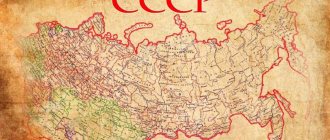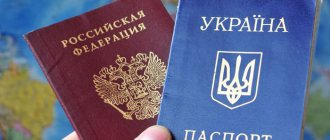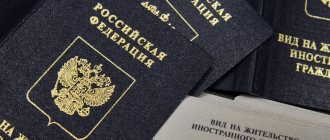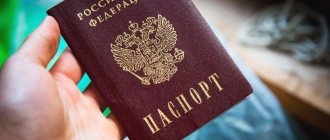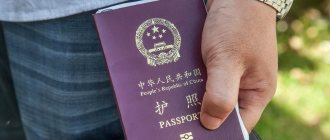Obtaining Russian citizenship by native Russian speakers
A native speaker of the Russian language is a foreign citizen who meets the criteria of the native speaker program (they are listed later in the article), submitted documents for registration of this status and passed the commission for recognition as a native speaker of the Russian language, after which he received the status of a native speaker of the Russian language.
Most often, Russian speakers come from Kazakhstan, Ukraine, or, for example, Moldova.
The right to apply for the status of a native speaker of the Russian language is available to legally competent foreign citizens who are already eighteen years old and who are fluent in Russian.
“Fluent command” of the Russian language in this case means that a person can easily communicate in Russian in everyday life and in official situations, understands the subtext and is able to use means of linguistic expressiveness in his speech.
Knowledge of the language is confirmed by a commission for recognition as a native speaker of the Russian language. That is, the applicant will also need to pass the exam.
In addition to knowledge of the language, an applicant for this status must prove his cultural and family ties with Russia. To do this, you need to provide evidence of kinship in a direct ascending line with people who live or lived in the territory of Russia, the USSR or within the borders of the Russian Empire.
Due to the increasing flow of migrants from neighboring countries in Russia, a program for native Russian speakers was created. The NRY program simplifies the procedure for obtaining Russian citizenship for those foreigners who have family and cultural ties with the country and who have a high level of knowledge of the Russian language.
In order to obtain the status of a native speaker of the Russian language, it is necessary to legally reside on the territory of Russia, have family ties with those who have Russian citizenship or, for example, were a citizen of the USSR, and also know the Russian language at the native level.
If all these conditions are met, a foreign citizen can submit an application to the migration authorities for recognition as a native speaker of the Russian language.
After submitting an application, a native Russian speaker must undergo an interview. At this stage, a special commission determines whether the level of language proficiency is sufficient and whether there are indeed grounds for obtaining NRN status.
If the commission makes a positive decision, you can safely collect the necessary package of documents (you will find the list below in the article) and submit an application for assignment of NRN status to the migration service.
The law regulates the requirements, all of which must be met in order to obtain official status as a native speaker of the Russian language; the applicant is subject to certain conditions:
- Only an adult can apply;
- residence of you or your ancestors in the Russian Federation or the RSFSR;
- possess linguistic skills of oral speech;
- collect materials in native Russian language;
- send a petition to the commission;
- pass the speaking test.
There are additional criteria that should also be considered. A citizen staying in the country is required to provide papers two weeks before the expiration date of the migration card. If the basis of stay is a residence permit or temporary residence permit - 90 days before the end date of the document.
The list of documentation that needs to be collected for the program by a native Russian speaker is small. It includes only the basic documents of title to confirm identity and the basis of stay in the country, and simplified registration of permission:
| 1 | application of the required form |
| 2 | passport (original, copy, and notarized translation) |
| 3 | migration registration card, visa, temporary residence permit or residence permit |
| 4 | confirmation of relationship with ascending relatives living in the Russian Federation and being its citizens |
| 5 | an extract from the house register or other proof of residence of you or your relatives in the country |
After sending and checking for the correctness and legality of all documents, the foreigner receives the right to take the exam: native Russian speaker. By law, the submission date must be set upon acceptance of the application, and the interview itself is carried out within a period of no later than two weeks. Therefore, it is recommended to prepare in advance and then submit documents.
Application for native Russian speaker form download 2021 Moscow
As already mentioned, it is possible to obtain Russian citizenship for native speakers of the Russian language in a simplified manner.
Firstly, the NRY certificate reduces the time required for obtaining citizenship - you do not need to obtain a temporary residence permit before a residence permit, and you do not need to live in Russia with a residence permit for 5 years, but you can apply for citizenship immediately after receiving a residence permit.
Also, the processing time for NRN documents for obtaining citizenship is significantly shorter than for other categories - only 3 months.
Due to the increasing flow of migrants from neighboring countries in Russia, a program for native Russian speakers was created. The NRY program simplifies the procedure for obtaining Russian citizenship for those foreigners who have family and cultural ties with the country and who have a high level of knowledge of the Russian language.
In order to obtain the status of a native speaker of the Russian language, it is necessary to legally reside on the territory of Russia, have family ties with those who have Russian citizenship or, for example, were a citizen of the USSR, and also know the Russian language at the native level.
If all these conditions are met, a foreign citizen can submit an application to the migration authorities for recognition as a native speaker of the Russian language.
After submitting an application, a native Russian speaker must undergo an interview. At this stage, a special commission determines whether the level of language proficiency is sufficient and whether there are indeed grounds for obtaining NRN status.
If the commission makes a positive decision, you can safely collect the necessary package of documents (you will find the list below in the article) and submit an application for assignment of NRN status to the migration service.
The application for recognition of an AE consists of two pages. It must be filled out personally by the applicant by hand or electronically. Abbreviations, abbreviations, corrections and omissions in questions are not allowed.
The form contains the following:
- Personal data of the applicant (previous full name and reasons for the change are indicated);
- Autobiography;
- Citizenship data;
- Listing of documents on RY training;
- Residence address and contact telephone numbers;
- Addresses of residence of the applicant’s relatives in Russia, the Soviet Union;
- Listing of documents (residence permit, temporary residence permit, etc.).
In questions regarding the listing of documents, comprehensive information is provided indicating the series, number, and date of issue.
At the end the personal signature of the applicant is placed.
The correctness of filling out and completeness of the package of documents is checked by a specialist from the migration department of the Main Directorate for Migration of the Ministry of Internal Affairs. If minor errors are found, the applicant will be given time to correct them.
Citizenship for Russian speakers
The legislation of the Russian Federation allows you to obtain the status of a native speaker of the Russian language completely free of charge. Submitting an application to become a Russian speaker, conducting testing, as well as the certificate itself are not subject to state fees. Every foreigner who has grounds to be assigned the appropriate status and is legally residing in the country can pass it.
After the official certificate is issued, a person can, even without a temporary residence permit, immediately apply for a residence permit. According to the norms, a residence permit is issued in a simplified form, the decision-making time is almost half as fast as usual.
The residence permit based on a native Russian speaker 2021 is unlimited. The decision is made once and is valid throughout life.
Those who apply for NRN status have one reason - such applicants intend to become holders of a Russian passport. In situations where there are no other grounds for obtaining Russian status, the Russian Native Speakers program is an excellent option.
A foreigner who has become an RN can:
- obtain a residence permit. At the same time, native Russian speakers have benefits - they do not have to go through the preliminary stage of obtaining a temporary residence permit. Such applicants, immediately after they are recognized as a NP, can carry documents for a residence permit.
- acquisition of citizenship. The Law “On Citizenship” has a separate article (33.1) dedicated to Russian speakers. It grants the NRN the right to obtain citizenship according to a simplified scheme. And the simplified procedure means that the candidate will not have to live in Russia for some period after the residence permit is issued. It will be possible to immediately apply for citizenship.
Previously, the big disadvantage of this option for obtaining a Russian passport was that the applicant could not obtain citizenship under the Russian Speakers program without relinquishing his original citizenship. A person received an RN, then obtained a residence permit, then formalized a complete renunciation of citizenship (which can take up to a year). And only after losing his previous citizenship could the candidate begin the procedure of joining the ranks of citizens of the Russian Federation. Of course, in such a procedure there were certain risks in which a foreigner could be left without any citizenship at all.
On July 24, 2021, the requirement to renounce citizenship was removed. Now there is no need to go such a long way. Now a foreigner receives a residence permit, and, without renouncing his original citizenship, applies for Russian citizenship.
We will describe the steps that a foreigner who wants to become a NRN must go through.
Stage 1. Collection of documents for recognition as a native speaker of the Russian language
The first thing you need to do is get documents that will convince the members of the NRN commission that you have a basis for acquiring status. We are talking about certificates that will confirm the fact that you or your relatives have permanently lived/are living on the territory of the Russian Federation (RSFSR, Russian Empire). Also, with the help of documents, you need to prove your relationship with the family member for whom you are applying for status.
The fact of relationship is confirmed by a certificate of birth, marriage, death, adoption. If women's surnames changed during marriage, then it is necessary to add the appropriate papers, which will reflect the fact of the change. To confirm the fact of permanent residence, the following are suitable: a residence permit, an extract from the house register, a copy of the apartment card, a military ID. If there are no such documents, then archives will help - you can confirm that a relative actually permanently lived on the territory of the Russian Federation, the Russian Empire, or the USSR, using archival certificates, copies of archival documents or extracts from them.
Papers are requested from archives, registry offices, passport offices, management companies and other government organizations.
Information about your residence
The sample application for NRN also indicates the need to indicate residence information. If a person believes that the migration service plans to check his registration, he is mistaken. When applying for participation in a government program, you must provide other information, which is much more difficult to confirm.
In this section, the applicant notes his attitude towards the Russian Federation. Relatives who lived on the territory of the USSR or the Russian Empire should be indicated. This information is checked without fail, as it becomes a pass to the state program. Which is why people need to take filling out this field seriously.
It is almost impossible to complete the application correctly on your own.
When applying to become a Russian speaker in Moscow, you should contact MS-Group. Our employees are experienced lawyers who have been dealing with migration issues for years. Foreign citizens too often make mistakes because they cannot get advice from government agencies. If you come to us, you will immediately understand how simply the documents are prepared, and how little time is required for formalities when obtaining Russian citizenship.
If you have any questions, you can always contact our law firm MS-Group! We will provide you with free legal advice and will also analyze your situation individually. After which all you have to do is follow our recommendations!
The procedure for obtaining citizenship for Russian speakers
Starting from June 2021, the commission (also called the Russian Speaker Exam) is no longer required for citizens of Belarus and Ukraine . This is stated in paragraph 1.1. Part 1 of Article 33.1 of the Federal Law No. 62 “On Citizenship”.
But such applicants must still have grounds, that is, they must confirm the fact of permanent residence in the Russian Federation of the applicant or relative. Ukrainians and Belarusians simply submit documents and an application for recognition of their NRN. The commission will review the application and make a decision.
Immigrants from other countries must undergo a commission. Let us immediately note that the commission for the NRN and the exam that is taken for the residence permit and citizenship are two different things. The commission usually takes the form of a conversation.
No one can tell you for sure what questions will be asked during communication. The fact is that there is no official document containing lists of topics.
Judging by the experience of foreign citizens, most often they are asked to tell about themselves, read an excerpt from the text, and are asked about the main historical dates. They may ask why you want to become a citizen of the Russian Federation. Someone was asked what to do if you get into an accident with victims. In general, the main thing is to show the ability to speak Russian well and competently (avoid filler words and vernacular). Plus, it’s worth brushing up on your knowledge of Russian history in order to be aware of the main events taking place in the country.
“Elementary questions: tell about yourself, read 2-3 lines in Russian, tell what dates you know from history. They may ask you questions about history themselves. For them, the main thing is to be fluent in Russian and to know at least a little history. Oh yes, they can ask what sights you know,”
— the experience of a foreign citizen (from discussions in the VK group “Citizenship of the Russian Federation “Native Speakers of the Russian Language”” )
If the exam for a native speaker of the Russian language is successful, then you will be given a document - “Decision on recognition as a native speaker of the Russian language . This document has no expiration date. That is, you will be able to obtain citizenship as an NRN after assigning the status at any time while the program is in effect.
The last stage, for which, in fact, everything was started - acquiring the status of a citizen of the Russian Federation. We emphasize that native speakers of the Russian language do not need to formalize a renunciation of their previous citizenship. This rule existed previously, but after changes in the law, as of July 24, 2021, NRNs do not renounce, and therefore retain their previous citizenship. You also do not need to present proof of income, in accordance with the same changes in Federal Law-62 “On Citizenship”, which have been in force since July 2021.
Important - after issuing a residence permit, you need to register at your place of residence in order to obtain citizenship. Migration registration will not work.
| Regulations | Titles |
| Federal Law No. 62 dated May 31, 2002. | “On citizenship of the Russian Federation” |
| Federal Law No. 115 dated July 25, 2002 | “On the legal status of foreign citizens on the territory of the Russian Federation” |
| Federal Law No. 109 dated July 18, 2006 | “On migration registration of foreign representatives or stateless persons on the territory of the Russian Federation” |
| Federal Law No. 143 dated November 15, 1997 | “On acts of civil status” |
What to write in the paragraphs of the application for a residence permit for NDT
- VRP
Residence permit for Russian speakers
- Elena Voropaeva
- 28.02.2020
As we have already noted, native Russian speakers will have to fill out a standard questionnaire. This is Appendix No. 1 to Order of the Ministry of Internal Affairs No. 846 (Regulations for issuing residence permits). I would like to immediately note that each inspector may have his own requirements for filling out. What is the correct filling for one employee of the Ministry of Internal Affairs may turn out to be a gross mistake for another inspector.
When filling out the form, be guided by the accepted applications of other foreign citizens. Samples are given at the end of the material.
In this article we will not describe in detail what to write in each paragraph. Instructions that detail how to fill out all sections are already on the website in the article about applying for a residence permit.
Native Russian speakers enter data according to the same rules as other applicants. But there are several points in which the formulation for AE differs. We'll tell you about them.
Motives
The first section, the completion of which differs for native Russian speakers, is motives. At the beginning of the application, under the photo frame, you are asked to indicate the reasons on the basis of which you want to obtain a residence permit. People who pass as NRN write here that they are recognized as native speakers of the Russian language, indicate the decision number, who made the decision, and when.
Example wording:
Recognized as a native speaker of the Russian language (decision (notification) of the commission of the Department of Internal Affairs of the Main Directorate of the Ministry of Internal Affairs of Russia for the city of Moscow No. 761 of April 20, 2021)
Grounds for simplified issuance of a residence permit
- GCitizenship
How to grant Russian citizenship to Russian speakers
- Elena Voropaeva
- 23.07.2019
Another section of the application for a residence permit for NV that we would like to draw your attention to is point No. 9. Here the applicant is asked whether he has reasons for a simplified registration of a residence permit.
At this point, native speakers of Russian write that they have a basis and then repeat the wording, as in motives. That is, they write down that they are recognized as NRN by such and such a body and on such and such a date.
How to fill out this item, see the example:
I have, I am recognized as a native speaker of the Russian language (decision (notification) of the commission of the Department of Internal Affairs of the Main Directorate of the Ministry of Internal Affairs of Russia for the city of Moscow No. 761 of April 20, 2018)
List of documents
- VRP
Instructions for filling out an application for a residence permit
- Elena Voropaeva
- 28.12.2020
In the final part, you need to list all the papers that the applicant attaches along with the application for a residence permit. Please note that photographs do not need to be included in this list, as they are not documents.
The list of papers for NRN differs from the standard one, therefore the section contains documents such as a decision to recognize a citizen as a native speaker of the Russian language, a document on registration of renunciation of citizenship. See the photo for an example of filling out this section.
Otherwise, there are no differences in filling out the application for NRNs - information is entered according to the same rules by which all other categories of foreign citizens indicate it.
Samples of accepted applications for a residence permit for a non-native language (taken from the VK group: Citizenship of the Russian Federation “native speakers of Russian”)
Application for a residence permit under NDT 1
Application for residence permit under NRN 2
Video about filling out an application for a residence permit
Subscribe to Migranta Rus: Yandex News.
Documents for granting Russian citizenship to native speakers of the Russian language
If the necessary grounds are met, you can submit an application for assignment of the appropriate status by contacting the Main Department of Migration Department at the place of temporary residence.
The following documents must be attached to the application:
– Passport of a foreign citizen or stateless person.
– An application that must be filled out in detail, without corrections or dashes.
– Confirmation of legal stay on the territory of the Russian Federation.
– Confirmation of permanent residence in the territory of the Russian Federation of the applicant himself or his relatives.
– If receipt of status is confirmed on the basis of family ties with citizens of the Russian Federation, then you must present a document confirming this fact (birth certificate, marriage certificate, etc.).
Within five days, a candidate who successfully passes the interview is given a permanent decision to recognize him as a native speaker of the Russian language and is issued a corresponding certificate.
After which the applicant has grounds to apply for Russian citizenship in a simplified manner in the status of a carrier.
In 2021, to obtain citizenship of the Russian Federation under a simplified scheme, you must have a residence permit. If a native Russian speaker has only temporary or permanent registration at the place of residence, then before obtaining Russian citizenship, it is necessary to obtain a residence permit. Carriers can receive it in a simplified manner - within two months from the date of receipt of the application, but for a period of no more than three years without further extension. After two years of living with a residence permit, you need to apply for Russian citizenship. When receiving a residence permit, applicants are exempt from confirming their knowledge of the Russian language, laws and history of Russia.
An interview to determine the status of a native speaker of the Russian language is carried out free of charge. The state fee for obtaining a residence permit is 3,500 rubles.
Thus, the status of a native speaker significantly speeds up and simplifies the entire process of naturalization of a foreign citizen in the Russian Federation. For them, the number of documents required for registration of citizenship and the period for their consideration have been reduced.
- Receipt procedure
- Obtaining a residence permit in the Russian Federation
- What does a residence permit in Russia provide?
- Indefinite residence permit in Russia
- Residence permit for a child
- Residence permit for Russian speakers
- Residence permit by marriage
- Residence permit without temporary residence permit
- Replacing a residence permit in Russia
- Checking the readiness of the residence permit
- Loss of residence permit in Russia
- Documentation
- List of documents for a residence permit
- Application for a residence permit in the Russian Federation
- State duty for a residence permit in the Russian Federation
- Registration
- Registration with a residence permit
- Receipt procedure
- Obtaining a temporary residence permit in the Russian Federation
- RVP for a child
- Obtaining a temporary residence permit for marriage to a citizen of the Russian Federation
- Checking the readiness of temporary residence permits in the Russian Federation
- Actions after receiving a temporary residence permit in the Russian Federation
- Annual notification of confirmation of residence under temporary residence permit
- Documentation
- List of documents for temporary residence permit
- Application for temporary residence permit
- State duty for temporary residence permit in the Russian Federation
- Quota for temporary residence permit
- Quota for temporary residence permits in the Russian Federation
- RVP without quota
- Registration
- Registration by temporary residence permit
- Registration of foreign citizens at the place of stay
- Submitting a notification of the arrival of a foreign citizen at the place of stay
- Deadline for migration registration of foreign citizens in the Russian Federation
- Form and sample notification of the arrival of a foreign citizen at the place of stay
- Filling out your arrival notification online
- Loss or damage to a notice of arrival of a foreign citizen
- Removal of a foreign citizen from migration registration at the place of stay
- Temporary asylum in the Russian Federation
- Temporary asylum in the Russian Federation for citizens of Ukraine
- Documents for temporary asylum in the Russian Federation
- Russian citizenship
- List of documents for Russian citizenship
- Application for Russian citizenship
- Documents for the resettlement program for compatriots
- State duty for Russian citizenship
- Resident card
- List of documents for a residence permit
- Application for a residence permit in the Russian Federation
- State duty for a residence permit in the Russian Federation
- RVP in the Russian Federation
- List of documents for temporary residence permit
- Application for temporary residence permit
- State duty for temporary residence permit in the Russian Federation
- Recognition as a native speaker of Russian
- Citizenship for Russian speakers
- Residence permit for Russian speakers
- Program for resettlement of compatriots to Russia
- Documents for the resettlement program for compatriots
- Citizenship under the compatriot resettlement program
One of the most important normative acts regulating and simplifying the procedure for obtaining Russian indigenous citizenship is Federal Law No. 1-FZ dated April 20, 2014 “On Amendments to the Federal Law “On Citizenship of the Russian Federation” and certain legislative acts of the Russian Federation.” In accordance with it, native speakers of the Russian language will be able to obtain Russian citizenship in three months; Article 1 determines the procedure for recognizing foreigners and stateless persons as a NRY. The interview is conducted by a special commission formed by the federal executive body. The procedure for its formation, requirements for members, rules for conducting interviews, requirements for the application form and decisions of the commission are determined directly by the executive body authorized to exercise control and supervision functions in the field of migration. Also, the new law on citizenship of the Russian Federation for Russian-speaking foreigners determines the deadlines for filing an application for assignment of the status of a native speaker of the Russian language.
After the changes enter into legal force, a foreigner temporarily staying in the country cannot travel outside of Russia after the expiration of the visa (or other period), if the territorial body of the Main Migration Directorate of the Ministry of Internal Affairs has accepted an application for admission to Russian citizenship.
If the application is written correctly and the package of documents is collected in accordance with the established requirements, the foreigner is informed of the date of the interview. During the exam, a test is carried out to confirm knowledge of grammar, the candidate is asked to read several texts and answer questions about the meaning of what they read, and is given the task of writing texts of different genres. The commission talks with the candidate for 30 minutes on various topics, thus determining the degree of his language proficiency.
The decision to assign status to a foreigner is made within 5 days.
Until 2021, migrants who expressed a desire to obtain citizenship of the Russian Federation had to apply to the Federal Migration Service. After abolition, the powers of this body were transferred to the Main Directorate for Migration Issues of the Ministry of Internal Affairs of Russia. Obtaining citizenship at the Main Directorate for Migration Affairs of the Ministry of Internal Affairs (UFMS) is carried out in the territorial divisions of the department. Applicants who have received the status of a native speaker of the Russian language should remember that its holders can obtain the status of a Russian citizen only on the territory of Russia. This cannot be done outside the country by contacting a consulate or diplomatic mission of the Russian Federation.
Obtaining the status of a native speaker of the Russian language does not guarantee that the applicant will be granted Russian citizenship; he may be refused.
Such a decision may be made if the applicant:
- submitted false documents or indicated knowingly false information in them;
- advocated a violent change in the constitutional system of the Russian Federation;
- served in the Armed Forces or in the intelligence service of a foreign state;
- convicted of acts of an extremist nature;
- is being prosecuted for a criminal offense or has an outstanding criminal record.
Contents and procedure for filling out the document
The formation, operating procedure and requirements for the forms of documents of the commissions fall within the competence of the “federal executive body authorized to exercise control and supervision functions in the field of migration,” that is, the Ministry of Internal Affairs.
According to the order of the Ministry of Internal Affairs of the Russian Federation No. 738 of September 28, 2021, the application must be submitted only in writing, filled out by hand or on a computer with a personal signature on the printout . The form can be downloaded online or received and filled out at the place of application.
Let's look at how to fill out an application for recognition of a citizen or stateless person as a native speaker of the Russian language. The document must contain:
- “Shapka” is the name of the territorial body of the Ministry of Internal Affairs to which the applicant applies to the commission. For example: “To the commission for recognizing a foreign citizen or stateless person as a native speaker of the Russian language of the Department of Internal Affairs of the Main Directorate of the Ministry of Internal Affairs of Russia for the Rostov Region.”
- Application registration number - entered by the receiving party.
- Color photograph 3*4.
- The legal basis for the application is in accordance with Part 1, Article 33.1 of the Federal Law “On Citizenship of the Russian Federation.”
- Information about the applicant - full name, if the last name has changed - the previous one, date and reason for the change, date and place of birth.
- Identity card details – passport, series, number, when and by whom it was issued.
- Information about existing citizenship.
- Brief autobiography - Written in the standard form:
“I, Ivanov Sidor Petrovich, was born in Lutsk, Ukrainian SSR in 1948...”. Indicate the names and years of graduation from school and university, places of residence in the Russian Federation and abroad. It is important to indicate the date of arrival or move to Russia and the place of official employment. - List of documents on studying the Russian language - school certificate, university diploma, certificate of completion of courses, document on receiving education in the Russian Federation. The series and number of each document, date and place of issue are indicated.
- Information about the permanent residence of the applicant and (or) his relatives in a direct ascending line on the territory of the Russian Federation, or the territory that belonged to the USSR, within the State Border of the Russian Federation - that is, the factual grounds allowing one to apply for status.
If the applicant himself lives or previously lived in Russia, the wording may be as follows: “permanent residence on the territory of the Russian Federation from October 2012 to the present,” or “... permanent residence on the territory of the Russian Federation from 1982 to 1990.”Currently, permanent residence of a foreigner means that he has a residence permit in the Russian Federation. During the Soviet period, permanent residence was the fact of permanent registration in a passport of the 1974 model. If the basis is kinship, then the column indicates its degree (mother, father, grandfather), full name (if it has changed, then when and why), period and place of registration.
For example: “father – Potapov Sidor Petrovich, in the period from 1944 to 1966 was registered at the address Tomsk, st. Pushkina, 34, apt. 2.”
- Relationship table - the standard form contains a table of five columns for collecting information about the relatives specified in the previous paragraph. You will need to indicate the degree of relationship (mother, father, grandfather), their full name, date of birth, citizenship and address of current residence or date of death.
- Data from a current document on legal stay or the right to reside on the territory of the Russian Federation - migration card, residence permit, temporary residence permit, date, number, issued by.
- Contacts – actual address of residence in Russia, current telephone number.
- List of attachments to the application - a list of copies of documents confirming the information contained in the application.
- Consent to the processing of personal data is a standard line informing about the subsequent processing of the information provided by government agencies.
- Date, signature.
- Block on verification and acceptance of the application (to be completed by the responsible person of the commission).
Important! Persons staying in the territory of the Russian Federation temporarily submit an application no later than 15 days before the end of their temporary stay. Foreigners living in Russia can apply for recognition as native speakers of the Russian language no later than three months before the expiration of their residence period.
We invite you to watch a video on how to fill out the application correctly:
Ways to obtain Russian citizenship as a native Russian speaker
- Admission to Russian citizenship
- Time frame for obtaining Russian citizenship
- Oath upon admission to Russian citizenship
- How to get a passport after being granted Russian citizenship
- How to confirm Russian citizenship
- Refusal of citizenship of a foreign state upon admission to Russian citizenship
- Admission to Russian citizenship in a simplified manner
- Who has the right to obtain Russian citizenship in a simplified manner
- Admission to Russian citizenship in a simplified manner for children and incapacitated persons
- Documents for simplified admission to Russian citizenship for children and incapacitated persons
- List of documents for obtaining Russian citizenship in a simplified manner
- Citizenship of the Russian Federation by birth on the territory of Russia
- How to obtain Russian citizenship by marriage
- Reinstatement of Russian citizenship
- Russian citizenship for residents of the DPR and LPR
- The procedure for registration at the place of stay on the territory of the Russian Federation for residents of the DPR and LPR
- Obtaining the status of NRY by residents of the DPR and LPR and their admission to Russian citizenship
- Acceptance of residents of the DPR and LPR into Russian citizenship as participants in the resettlement program
- Program for resettlement of compatriots to Russia
- Who can participate in the resettlement program for compatriots
- How to obtain Russian citizenship for participants in the compatriot resettlement program
- List of documents for participation in the program of resettlement of compatriots
- Documents for admission to Russian citizenship under the resettlement program
Special visas have been prepared for Russian-speaking foreigners
- Admission to Russian citizenship in the general manner
- Conditions for admission to Russian citizenship in general order
- Grounds for easing the conditions for admission to Russian citizenship in the general manner
- Documents for Russian citizenship in general order
- Application for admission to Russian citizenship in the general manner
- Residence permit in the Russian Federation
- Application for a residence permit
- Documents for obtaining a residence permit
- Registration of a residence permit for a child
- Residence permit in the Russian Federation without obtaining a temporary residence permit
- Residence permit for Russian speakers
- Residence permit in Russia without expiration date
- Permanent and temporary registration with a residence permit in the Russian Federation
- Obtaining Russian citizenship after a residence permit
- Admission to Russian citizenship: from residence permit to passport
Obtaining citizenship in the Russian Federation in a simplified manner for native speakers is determined by law. Knowing Russian as a foreign language and being a native speaker are not the same thing. The Law “On Citizenship” briefly describes the criteria that determine the status: to be able to speak and write, as well as understand the speech of Russian speakers in any situation. However, “native speaker of Russian” is a linguistic concept that characterizes and identifies a person according to several criteria. The most common:
- speaks Russian since childhood;
- knowledge of the language is passed on from the family, from parents;
- understanding the Russian language naturally and intuitively;
- have the ability for spontaneous and fluent speech;
- a foreigner speaks Russian without an accent.
That is, the native speaker “thinks” in Russian. Often the language is native to such a person.
The document is issued three months from the date of submission of the package of documents. However, there are also reasons for refusal of Russian citizenship. One cannot hope to become a Russian if:
- threatens the security of the country and the population of Russia;
- calls for a change in the constitutional system in Russia;
- fought against Russian armed forces and peacekeepers;
- is associated with terrorist organizations;
- incites ethnic conflict;
- exhibits racial hostility;
- was expelled from Russia;
- falsified personal data;
- is in the army or security service of another country;
- did not expunge the criminal record;
- is wanted.
If a foreigner does not threaten the security of Russian citizens, has confirmed his identity and does not fall under other criteria for denial of citizenship, obtaining a Russian passport will not be difficult.
How to obtain Russian native speaker status in 2021
After a foreign citizen is recognized as a native speaker of the Russian language and has prepared all the necessary documents, including confirming the renunciation of citizenship, as well as having a residence permit, he has the opportunity to apply for Russian citizenship.
In accordance with the provisions of the legislation on citizenship, the applicant can submit this application only to the territorial body of the Ministry of Internal Affairs, thereby being on the territory of the Russian Federation. Submitting an application to the Russian consulate is prohibited, and this is one of the main features of the process of acquiring citizenship on the basis of recognition as a native speaker of the Russian language.
- application for admission to Russian citizenship in two copies;
- passport or other document confirming the identity of the person;
- a receipt for payment of state duty in the amount of 3,500 rubles;
- photographs 3x4;
- decision of the Russian Ministry of Internal Affairs on recognition as a native speaker of the Russian language;
- a document from the migration authority of the state to which the citizen belonged and which confirms his renunciation of citizenship;
The Federal Law “On Citizenship of the Russian Federation” has existed since 2002. This legislation defines a citizen of the Russian Federation as an individual who:
- Has Russian citizenship on the day of approval of the Federal Law “On Citizenship of the Russian Federation”, namely on July 1, 2002.
- A person who acquired citizenship of the Russian Federation in accordance with the law after its entry into force.
The Federal Law on Russian Citizenship spells out the main principles of Russian citizenship, cases, rules and procedure for issuing citizenship, as well as its withdrawal - cases of deprivation of Russian citizenship.
A document confirming citizenship of the Russian Federation is a state passport of a citizen of the Russian Federation.
According to the law on Russian citizenship, a person born on the territory of Russia, provided that at least one of his parents is a Russian citizen, automatically receives citizenship in Russia, without additional procedures and difficulties.
However, for foreign citizens, obtaining Russian citizenship is a much more complex and lengthy matter.
On the way to the coveted Russian passport, the migrant will have to go through many offices and fill out a huge number of papers. To make it easier for you to go through all the procedures without making mistakes and thus without delaying the process, in this article we will tell you in detail how a foreigner can obtain Russian citizenship.
The procedure for obtaining Russian citizenship for foreign citizens differs depending on the applicant’s status in the Russian Federation and the permits that he already has and the availability of grounds for obtaining Russian citizenship in a simplified manner.
For example, the general procedure implies that a foreign citizen wishing to obtain Russian citizenship must first obtain a temporary residence permit, residence permit and live in Russia for at least 5 years, and only then will he be able to apply for Russian citizenship. We will tell you more about how to obtain Russian citizenship on a general basis later in the article.
So, as we have already mentioned, the procedure for obtaining Russian citizenship and obtaining a Russian passport for foreign citizens will differ:
- By right of birth
- By right of marriage with a Russian
- For Russian speakers
- Foreigners with the status of “Refugees”
- Highly qualified specialists
- People participating in the resettlement program
- Citizens of CIS countries
- Born in the Soviet Union or USSR
- Studied in Russia or the former Soviet Union
- Those receiving citizenship in the general manner


